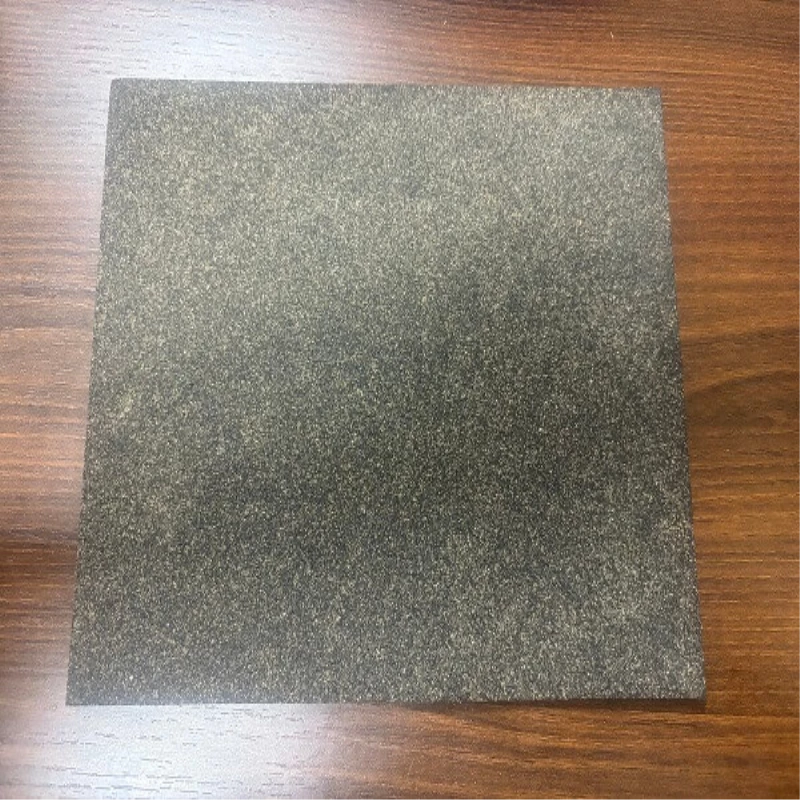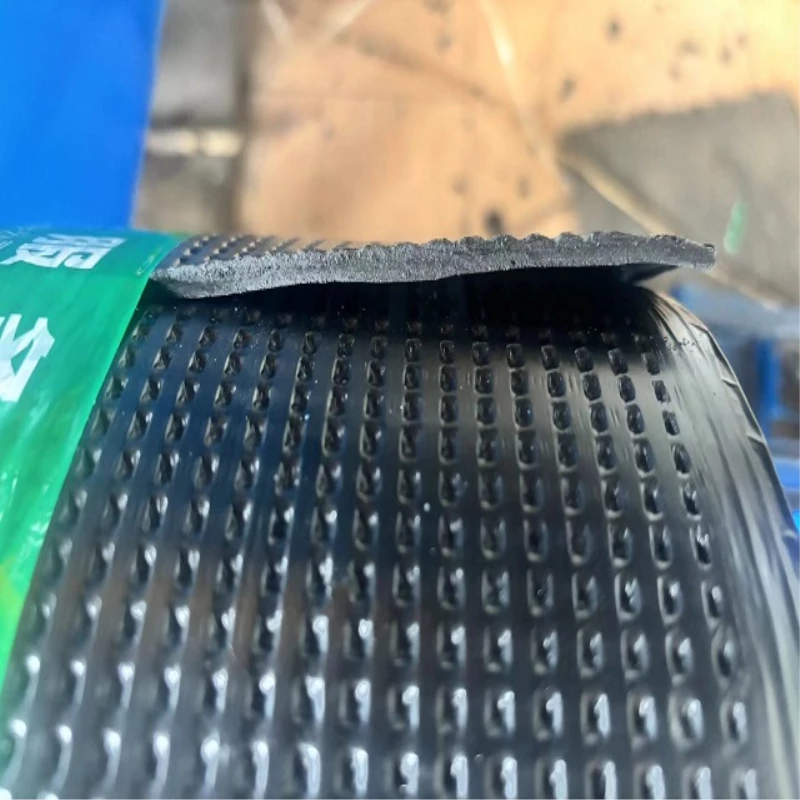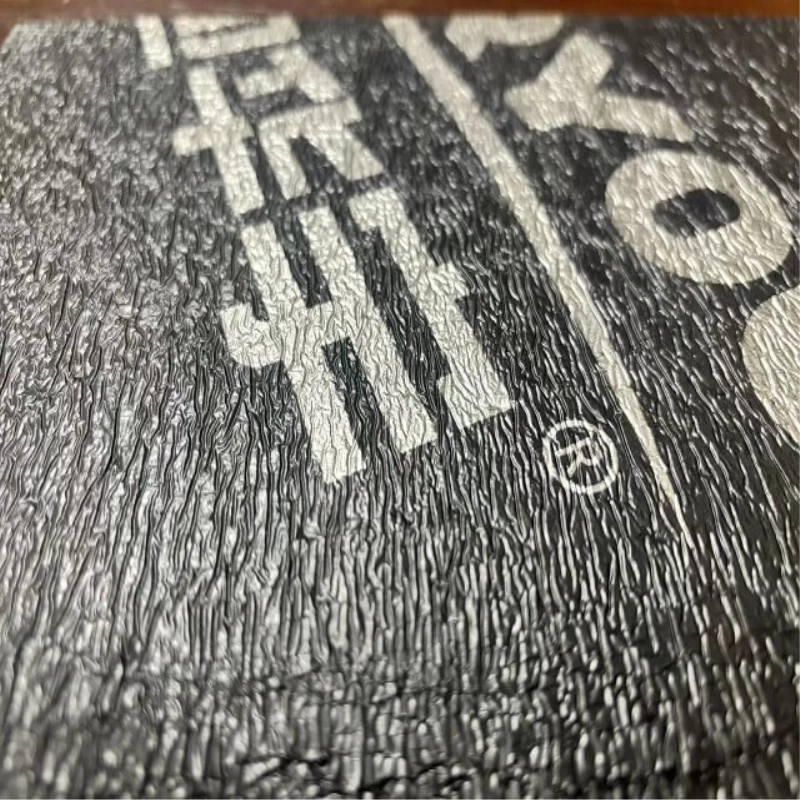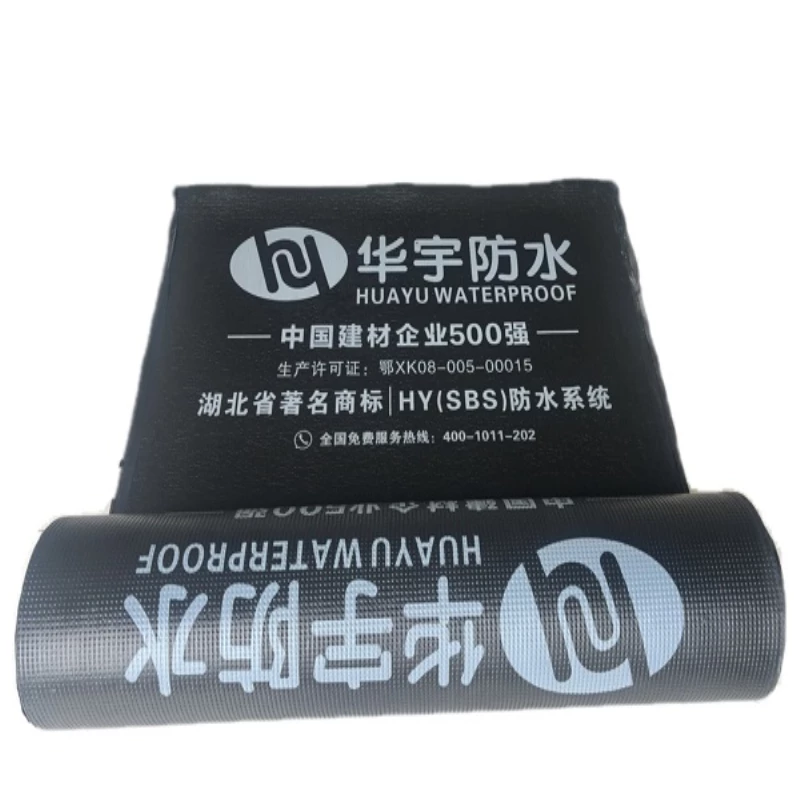Elastomer (SBS) Modified Bitumen Waterproof Membrane
- Packaging
- cylindrical shape and packaged with appropriate packing materials.
- Thickness(MM)
- 3.0
- Width(M)
- 4.0
- Length(M/Roll)
- 5.0
- Square Meter(㎡/Roll)
- 1.0
- Upper Surface isolation Material
- 10
- Lower Surface isolation Material
- 7.5
modified-583.jpg) Product Description:
Product Description:
Elastomer (SBS) Modified bitumen Waterproofing Membrane is a flexible sheet material . It is made with petroleum bitumen as the base material, styrene-butadiene-styrene (SBS) thermoplastic elastomer as the modifier, polyester mat (PY) as the reinforcement layer, and surface isolation materials such as polyethylene film (PE), fine sand (S), and mineral granules (M).
Product Specifications:
Packaging: cylindrical shape and packaged with appropriate packing materials.
Width (m): 1.0
Thickness (mm): 3.0, 4.0, 5.0
Length (m): 10, 7.5
Suqare meters (㎡/roll): 10, 7.5
Upper Surface isolation Material: Polyethylene Film (PE), Fine Sand (S), Mineral Granules (M)
Lower Surface isolation Material: Polyethylene Film (PE), Fine Sand (S)
Product performance:
Performance
Technical Indicators
Typical values
Soluble Matter Content (4mm)
≥2900 g/m2
3074 g/m2
Heat Resistance
105℃No flow, no dripping
Qualified
Low-Temperature Flexibility
-25℃ No Crack
Qualified
Tensile Strength
≥800 N/50mm
1195 N/50mm
Elongation
≥40%
51
Oil Permeability
≤2 pieces
1 piece
Lower Surface thickness of bitumen Coating Membrane
≥1.0 mm
1.4 mm
Product Features:
1、The use of high-quality elastomer (SBS) modifiers improves the material's temperature sensitivity, enhances aging resistance, and provides excellent oxidation resistance, durability, and stability, extending the service life.
2、The polyester mat (PY) as reinforcement layer offers puncture resistance, abrasion resistance, and tearing resistance, increasing the material's strength and effectively withstanding damage and destruction from both the upper and lower surfaces.
3、The material does not flow at high temperatures and does not crack at low temperatures, offering a wide temperature range for use (high temperature: 90°C, low temperature: -20°C).
Application Methods:
Hot Melt Construction: Subgrade treatment → Additional layer construction → Hot melt large area construction (rolling out the membrane) → Air release and compaction → Water tightness test → Protective layer construction
1、Subgrade treatment: Clean the surface first; the subgrade should be solid, smooth, and clean; apply a primer evenly, ensuring full coverage without missing any spots; wait until the surface is dry before laying the membrane.
2、Additional layer construction: For areas such as corners, pipe roots, gutters, and expansion joints, additional layer treatment should be applied. Pre-cut pieces of membrane should be laid on the subgrade according to the required dimensions and shapes.
3、Large area construction: Unroll the membrane to release stress, and lay it flat according to the chalk lines on the surface; use a hot melt tool to heat the underside of the membrane and the subgrade until the bituman on the membrane surface shines and reaches a molten state; roll out the membrane while heating, then use a roller to press it down, ensuring a strong bond with the subgrade.
4、Lap joint treatment: The lap width of the membrane should be 100mm; the lap area should be sealed separately, also using the hot melt method. The lap joint should be filled with molten modified bituman, with a width of about 3-5mm and should be even and straight.
5、 Water tightness test: Conduct the water tightness test according to the construction plan requirements.
Hot Adhesive Construction: Subgrade treatment → Additional layer construction → Hot adhesive large area construction → Air release and compaction → Water tightness test → Protective layer construction
1、Subgrade treatment: Clean the surface first; the subgrade should be solid, smooth, and clean; apply a primer evenly, ensuring full coverage without missing any spots; wait until the surface is dry before laying the membrane.
2、Additional layer construction: For areas such as corners, pipe roots, gutters, and expansion joints, additional layer treatment should be applied. Pre-cut pieces of membrane should be laid on the subgrade according to the required dimensions and shapes.
3、Large area construction: Unroll the membrane to release stress, and lay it flat according to the chalk lines on the surface; use a hot adhesive tool to heat the underside of the membrane and the subgrade until the adhesive on the membrane surface reaches a molten state; roll out the membrane while heating, then use a roller to press it down, ensuring a strong bond with the subgrade.
4、 Lap joint treatment: The lap width of the membrane should be 100mm; the lap area should be sealed separately, also using the hot adhesive method. The lap joint should be filled with molten adhesive, with a width of about 3-5mm and should be even and straight.
5、Water tightness test: Conduct the water tightness test according to the construction plan requirements.
6、Protective layer construction: A protective layer should be set up on the outer surface of the waterproof layer according to relevant specifications or design requirements.
Precautions:
1、Construction is strictly prohibited during rain, snow, or winds above level 5.
2、The ambient temperature during construction should not be below 0°C.
3、In the event of precipitation during the construction process, protective measures should be taken for the already laid membranes.
4、The distance between the nozzle of the flame heater and the surface of the membrane should be appropriate; heating should be even across the width, with the membrane surface melting to a shiny black color, avoiding overheating the membrane.
5、Safety protection facilities should be in place at the construction site, and fire-fighting equipment should be positioned according to regulations.
Product Application:
It can be widely used in various fields and types of waterproofing projects. It is particularly suitable for the following types of projects: waterproofing roofs for industrial and civil buildings; waterproofing and moisture protection for underground engineering of industrial and civil buildings, as well as structures waterproofing such as indoor swimming pools and fire protection pools. For exposed applications, waterproofing membranes with opaque mineral granules as the surface isolation material are used.
We have more categories for you. lf you can't find the products you want above,just fill in the form and tell us whatproducts you want to import from China.


modified-583.jpg_800x800.webp)














